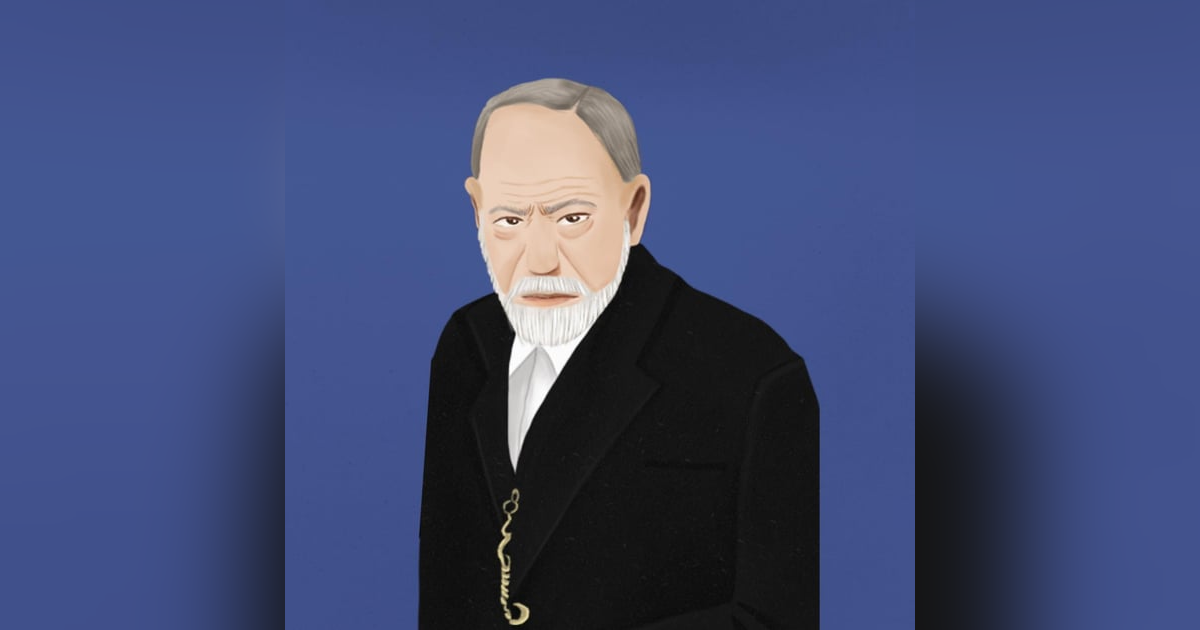
Sign up to get updates from us
By signing up, you agree to receive email from this podcast.

In "Freud: A Life for Our Time," Peter Gay offers a comprehensive biography of Sigmund Freud, the father of psychoanalysis. Gay explores Freud's childhood, education, professional life, and relationships, providing insight into the man behind the revolutionary theories of the unconscious, dreams, sexuality, and the Oedipus complex. Gay also examines Freud's personal struggles, including his battles with depression, his complicated relationships with his family and colleagues, and his contentious relationship with Carl Jung. Throughout the book, Gay highlights Freud's impact on modern psychology and his lasting legacy as a pioneer in the field of psychoanalysis.
Key plot points in "Freud" by Peter Gay include Sigmund Freud's early life and education, his development of psychoanalysis and key theories such as the Oedipus complex and the unconscious mind, his relationships with colleagues and patients, and his exile from Austria during World War II.
Character development in the book focuses primarily on Freud himself, detailing his personal struggles and triumphs as he revolutionizes the field of psychology and deals with personal tragedies such as the death of his daughter Sophie.
Thematic ideas in "Freud" include the exploration of the unconscious mind, the impact of childhood experiences on adult behavior, the role of sexuality in human development, and the nature of human desire and repression. The book also delves into Freud's own struggles with his theories, as well as his influence on modern psychology and culture.
Peter Gay is a renowned writer known for his insightful analysis and nuanced understanding of Sigmund Freud's work. In his writings on Freud, Gay employs a sophisticated writing style that reflects his deep appreciation for Freud's theories and ideas.
Gay's writing is characterized by its clarity, organization, and precision. He carefully lays out his arguments and explanations in a logical manner, making it easy for readers to follow along and understand the complex concepts that he is discussing. Gay's language is also highly descriptive and evocative, allowing readers to vividly imagine the concepts and ideas that he is presenting.
In his exploration of Freud's work, Gay skillfully uses language to convey the emotions and meanings behind Freud's theories. He delves deep into Freud's personal history and psychological insights, providing a rich and nuanced portrait of the man behind the theories. Gay's writing is filled with empathy and understanding, allowing readers to connect with Freud on a personal level and appreciate the depth and complexity of his ideas.
Overall, Peter Gay's writing skills and language style play a crucial role in conveying the emotions and meanings of Freud's work. Through his insightful analysis and evocative writing, Gay offers readers a deeper understanding and appreciation of Freud's groundbreaking theories and their significance in the field of psychology.
Sigmund Freud, the Austrian neurologist and founder of psychoanalysis, has had a profound influence on literature, culture, and society. His theories on the unconscious mind, dreams, sexuality, and the psychological development of individuals have had a lasting impact on the field of psychology and beyond.
In literature, Freud's ideas have been a source of inspiration for many authors and playwrights. Writers such as Virginia Woolf, James Joyce, and D.H. Lawrence incorporated Freudian concepts into their works, exploring the complex inner lives of their characters and delving into the depths of the human psyche. Additionally, the concept of the "Freudian slip," or a seemingly unintentional mistake that reveals one's true thoughts or desires, has become a common trope in literature and popular culture.
Freud's influence on popular culture can also be seen in the proliferation of psychoanalytic themes in film, television, and advertising. Characters and storylines often reflect Freudian concepts such as repression, Oedipal conflicts, and the unconscious mind. Additionally, Freudian symbolism and imagery are frequently used in art and music to explore themes of desire, fear, and the complexities of human relationships.
In society, Freud's ideas have contributed to a greater understanding of human behavior and mental health. His emphasis on the importance of childhood experiences and the unconscious mind has shaped modern psychotherapy and counseling practices. Additionally, Freud's theories have helped to destigmatize mental illness and promote a more holistic approach to mental health treatment.
Overall, Freud's influence on literature, culture, and society has changed people's ways of thinking about themselves and others. His work has opened up new avenues of exploration into the complexities of the human mind and has had a significant impact on fields such as psychology, literature, and popular culture. Freud's legacy continues to resonate in our understanding of the human experience and the ways in which we interpret and interact with the world around us.
1. "The first human who hurled an insult instead of a stone was the founder of civilization."
2. "The interpretation of dreams is the royal road to a knowledge of the unconscious activities of the mind."
3. "The more the fruits of knowledge become accessible to men, the more widespread is the decline of religious belief."
4. "One day, in retrospect, the years of struggle will strike you as the most beautiful."
5. "Most people do not really want freedom, because freedom involves responsibility, and most people are frightened of responsibility."
6. "The conscious mind may be compared to a fountain playing in the sun and falling back into the great subterranean pool of subconscious from which it rises."
7. "Time spent with cats is never wasted."
8. "The goal of all life is death."
9. "The interpretation of dreams is the royal road to a knowledge of the unconscious activities of the mind."
10. "A certain degree of neurosis is of inestimable value as a drive, especially to a psychologist."
Book https://www.bookey.app/book/freud
Author https://www.bookey.app/quote-author/peter-gay
Quotes https://www.bookey.app/quote-book/freud
YouTube https://www.youtube.com/watch?v=iLc79HEZuWs
Amazom https://www.amazon.com/Freud-Life-Time-Peter-Gay/dp/0393328619
Goodreads https://www.goodreads.com/book/show/97746.Freud